The following topics are covered during the course:
- What was the process for revision?
- Contentious topics
- Implementation of the 4th edition
- Preventive action vs Risk management: ISO 15189:2022: throughout the document
- Relationship to ISO 22367, Medical laboratories — Application of risk management to medical laboratories - Risk-based thinking”
- Why is the ISO 15189:2022 patient focused?
- Which are the new requirements regarding patients and other considerations related to patients that are included in the ISO 15189:2022?
- How does ISO 15189 now cover POCT? What this means for labs. What this means for POCT operators.
- Internal evaluations. Different mechanisms to evaluate the management system
- Management review. Purpose and usefulness. Differences between the 3rd and 4th edition
- Supporting documentation
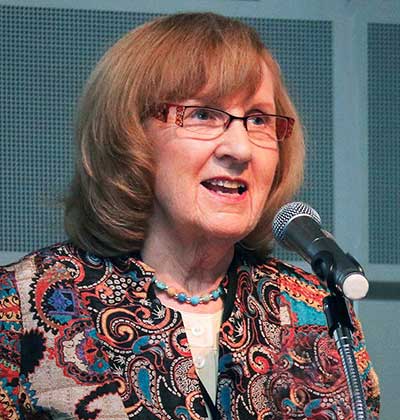 | Sheila Woodcock MBA, FCSMLS(D) President and Principal Consultant QSE CONSULTING INC Sheila Woodcock, the founder of QSE Consulting Inc., is a quality management specialist, with many years’ experience in health care, education, professional regulation, and consulting. She is the Convenor of ISO/TC212 WG1 Quality and competence in the medical laboratory, and project leader for the recent revision of ISO15189. Sheila volunteers with Canadian Standards Association (CSA) and Standards Council of Canada (SCC) for ISO /TC212 Clinical laboratory testing and in vitro diagnostic test systems and ISO/TC304 Healthcare organization management. Projects and speaking engagements have taken her across Canada and around the world. At home in Lunenburg, Nova Scotia, Sheila is a keen community volunteer and serves on the Board of the IWK Health Centre in Halifax, that provides care for women and children in the Maritimes. |
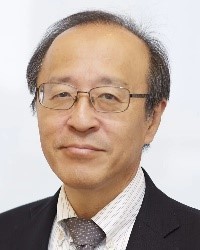 | Dr. Hayato Miyachi, MD, PhD Chair of the Committee for Standardization of Molecular-genetic Testing - Japanese Committee for Clinical Laboratory and Standards (JCCLS) Dr. Hayato Miyachi is an industrious leader of quality assurance of molecular-genetic testing through development of human resources, standards and schemes, for the purpose of realization and promotion of precision medicine, with an ultimate goal of human well-being and a wealthy society. Dr. Miyachi was formerly Professor of Department of Laboratory Medicine at the Tokai University of School, Isehara, Japan, for 19 years, and the Director of Clinical Laboratory and Infection Control at the Tokai University Hospital for 20 years. Since April 2022, Dr. Miyachi is Professor at the Nitobe Bunka College, Faulty of Clinical Laboratory Sciences, Tokyo, Japan, currently leading the college as a Vice-Dean. He is also leading the College of Laboratory Medicine of Japan (CLMJ) as a President. Dr. Miyachi is a Clinical Hematologist and Internal Medicine specialist by training with more than 40 years of experience. He has been an Infection Control physician, a Laboratory Specialist, and a researcher for molecular biology of leukemia and quality assurance of molecular-genetic testing throughout his career. He holds a degree for Ph.D. (Medicine) from Keio University School of Medicine. Dr. Miyachi is currently acting as the Chair of the Committee for Standardization of Molecular-genetic Testing in the Japanese Committee for Clinical Laboratory and Standards (JCCLS), taking an initiative in regional and international efforts on quality assurance and standardization of molecular-genetic testing, e.g., nation-wide external quality assessment of PCR detection of SARS-CoV-2 and cancer genome profiling testing. He is also acting as the Chair of Japanese National Mirror Committee for ISO Technical Committee 212 (Clinical laboratory testing and in vitro diagnostic test systems) and serves in the Working Group 1, as a project team member of the newly established international standard for medical laboratories (ISO 15189: 2022 – Medical Laboratories – Requirements for quality and competence), in the Working Group 4, as a project leader for development of the international standards for in vitro diagnostic medical devices (ISO 21474-1: 2020 – Multiplex molecular testing for nucleic acids – Terminology and general requirements for nucleic acid quality evaluation, ISO 21474-2: 2022 – Validation and verification, and ISO/CD 21474-3 – Interpretation and reports), as well as in the Joint Working Group 6, as a co-project leader for development of the newly established international standard for in vitro diagnostic test systems for SARS-CoV-2 (ISO/TS 5798: 2022 In vitro diagnostic test systems — Requirements and recommendations for detection of severe acute respiratory syndrome coronavirus 2 (SARS-CoV-2) by nucleic acid amplification methods. With these activities as a background, Dr. Miyachi has been constantly showing an innovative leadership in conducting governmental policy research works for regulatory enforcement on the quality assurance of molecular-genetic testing (enforced in the year 2018) and associated studies for the continuous quality improvement in Japan. |
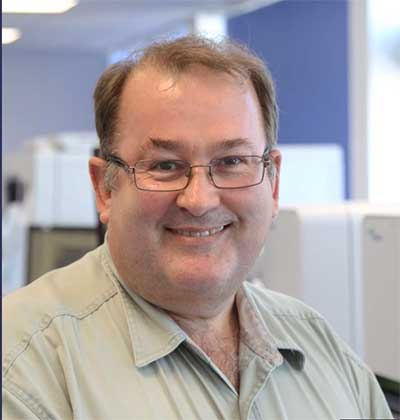 | Dr. David Rickets, DBMS Head of Laboratory Process Improvement. Head of Laboratory Process Improvement Health Services Laboratories David currently works as head of process improvement for Health Service Laboratories in central London, which is part of the wider Sonic Healthcare group and is the managing director of his own Consultancy firm. David chairs the UK's TC212 mirror committee, and is head of the UK delegation on the TC- 212 committee. David has extensive experience writing standards, and was the project lead on ISO 22870, on the writing team of ISO 15189:2022, as well as supporting many other standards including ISO 22367. David has written many expert commentaries for British Standards. The commentaries are designed to explain the changes in new version of ISO standards and explain how to use them in the laboratory setting, ISO 22367 and ISO 15190 (safety) are two recent commentaries. David has a strong background in laboratory process improvement, and he links this to the needs of compliance with ISO requirements. David has spoken nationally and internationally on a wide range of subjects including quality and compliance and is speaking on risk and safety as well as the new version of ISO 15189 at the IBMS congress. |
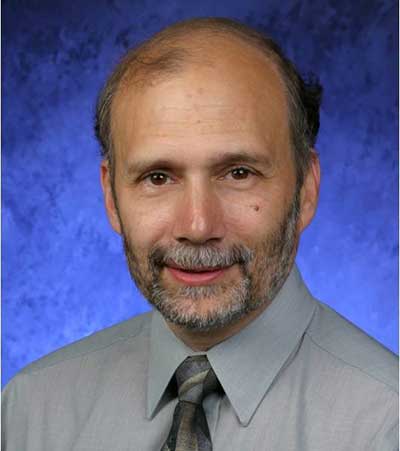 | Dr. William Castellani, MD Member of the ISO 15189 work group TC 212 Dr. William Castellani is a retired professor of pathology at Pennsylvania State -Hershey College of Medicine in Pennsylvania, and is the former medical director of clinical chemistry at Hershey Medical Center. He has been an active member of ISO working group TC 212 for over twenty years and has participated in writing all four editions of the standard. |
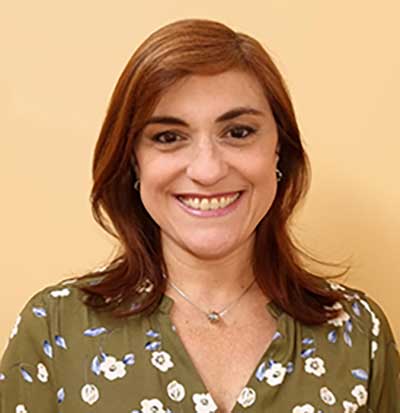 | Analía S. Purita Member of ISO/TC 212 and ISO/TC212/WG1, ISO 15189 Quality and competence in the medical laboratory Analia is a trained biochemist with specialization in biotechnology (UBA, Universidad de Buenos Aires), and a specialist in quality management systems and audit (UBA, Universidad de Buenos Aires). She also holds a diploma in biorisk management. Analia is based in Buenos Aires, Argentina and supports many international projects with her time and expertise, employing her fluency in Spanish to reach and educate the Spanish speaking laboratory community. Analia currently works for the National Standardization Organization called “IRAM - Instituto Argentino de Normalización y Certificación” (“Standardization and Certification Argentinian Institute”), and she has been supporting ISO 15189-Medical laboratories. Requirements for quality and competence” since the first edition developed in 2003. Analia is the Lead convener of the ISO/TC212/STTF (Spanish translation task force), which is responsible for the official translations of the ISO standards into Spanish. She is currently the Senior Convener of the national technical committees: Biobanks; Biological risk Management; Biotechnology; Biosecurity; Extraction and transfusion equipment; Quality and competence in medical laboratories; Patient centered care; Promotion of gender equity; Reference systems and others. Member of the ISO Technical committees: · ISO/TC 212 Clinical laboratory testing and in vitro diagnostic test systems · ISO/TC 212/WG1 Quality and competence in the medical laboratory · ISO/TC 212/WG5 Laboratory bio-risk management · ISO/TC 304 Healthcare organization management · ISO/TC 304/WG5 Healthcare quality management · ISO/PC 337 Guidelines for the promotion and implementation of gender equality |
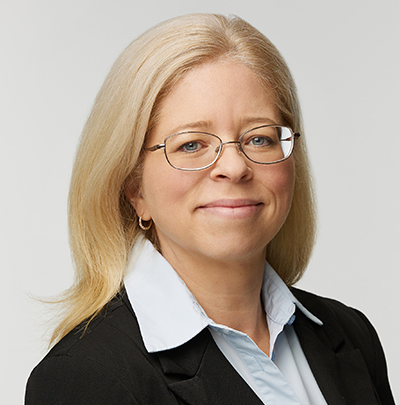 | Anne Marie Martel, MT Member, CSA Group for Medical Laboratory Quality Systems Anne-Marie Martel is a medical laboratory technologist with a bachelor in business administration. She has over 25 years expertise in medical laboratories and pre-examination activities, in the province of Quebec, in Canada. In addition to her direct laboratory experience, Mrs. Martel worked as scientific lead at the regulatory college for medical laboratory technologists in Quebec. She also participated in the accreditation of Quebec laboratories as lead assessor for the Bureau de normalisation du Québec. In the last 15 years, Mrs. Martel has specialized in standard development for medical laboratories and pre-examination activities. She was a member and chair of many committees and expert panels at the Clinical and Laboratory Standards Institute (CLSI), in the United States. She was also a member and past chair of the medical laboratory technical committee of the Canadian Standards Association, CSA, for many years, as well as a member of the mirror committee, representing Standards Council of Canada at the International level. This has allowed her to participate as a member of Technical committee 212 Clinical laboratory testing and in vitro diagnostic tests systems, the committee responsible for the revision of ISO 15189. As part of the working group 1, she was able to comment on version 2012 and 2022 of ISO 15189, Medical laboratories, Requirements for quality and competence. Mrs. Martel now works as a project manager at CSA Group. |
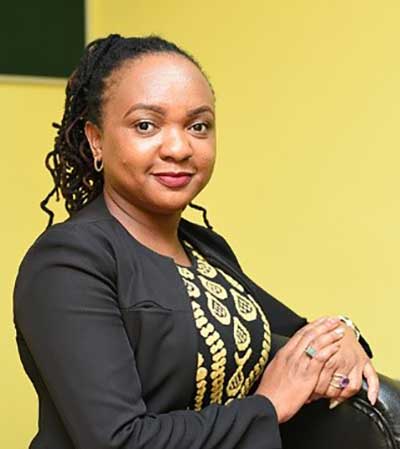 | Doris Mueni Mengo, MSc Manager, Medical Laboratory Accreditation Department, Kenya Accreditation Service (KENAS) Doris Mueni Mengo is the Manager in charge of the Medical Laboratory Accreditation Department which is responsible for point of care testing, diagnostic imaging, and proficiency testing at the Kenya Accreditation Service (KENAS) based in Nairobi, Kenya. She holds a Master’s and a Bachelor’s degree in Medical Microbiology from the Jomo Kenyatta University of Agriculture and Technology (JKUAT). She holds a diploma in quality infrastructure in support of world trade, and is currently an Master’s in Business Administration (MBA) candidate. Doris has over 16 years of work experience in the public sector supporting healthcare. Her interests span from; the development of health-related standards; to promoting accreditation and the use of accredited medical laboratories for improved health outcomes in Kenya, East Africa, and Africa. |
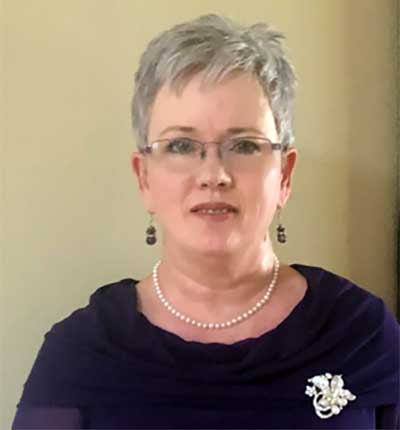 | Janette Wassung Managing Director, Quality First PTY Ltd Janette Wassung is a medical laboratory technologist by profession. Her passion and expertise are in Quality Management, with over 22 years’ experience in the implementation of Quality Management Systems. Mrs Wassung worked in and with private medical laboratories most of her professional career, with quality management systems (QMS) implementation experience all over Africa, as well as Ireland and the UAE. In addition to her laboratory experience, Mrs Wassung is a certified ISO 15189 auditor, on both technical and management systems, through the South African National Accreditation System (SANAS). During her professional career in QMS implementation, she was a member of many drafting committees and expert panels at the Clinical and Laboratory Standards Institute (CLSI), in the United States. In 2012 Janette started the mirror committee to ISO TC 212 in South Africa, SABS TC 212, representing South Africa at the international committee TC 212. TC 212 is responsible for drafting and reviewing ISO standards and other documents for the medical laboratory industry. As part of work group 1, Mrs Wassung participated as team lead on the drafting committee for the revision of ISO 15189:2012, which has been published as Ed 4 in December 2022. Mrs Wassung started the company Quality First, and she is based in Cape Town, South Africa. |
Delivery method
- Completely online and on demand course
- Pre-recorded lectures, self-paced quizzes and videos, organized into 4 modules by logical subject matter.
Course Length
- Variable depending on student time.
- Course consists of 4 stand-alone modules that each take 1-2 hours to complete.
- Total course running time is not expected to exceed 6 contact hours.
- Learners must complete all requirements of each module in order to advance to the next module, but you may do so at your own pace. Successful completion of each module and the final course survey will result in a certificate of completion.
- Canadian Society for Medical Laboratory Science (CSMLS)
- This course is eligible by CSMLS/ASCP for 0.6 CPS credits and 9.5 PEP hours.
Has been available since
- February 2023 – Self-paced. Join anytime. ENROLL NOW
For more information about the course please email lqm@pathology.ubc.ca